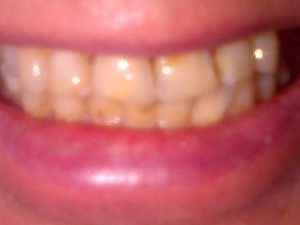As I’m sure you know autism and education is one of the big themes of this blog. And for many in the autism community the new school year is about to begin. To with our commitment to crowd sourcing ideas from our readers we decided to ask our readers on FaceBook what they thought were good ideas by asking the question “What tips would you give for children on the autism spectrum just about to start the new school year?”.
The results were ( as always from the autism community) both abundant and useful. So here is a selection for you.
“Leading up to going back to school, I show him pictures of his new teachers, talk about school and generally just prepare him for it. Also put him into the holiday Club 1 day a week through summer hols, which is basically on the school campus x x” came from Julie.
While Kirsty said “The school should have provided the child with a social story that can be shared. This should include any teachers they will be working with together with a picture. If they are changing rooms they should have pictures of that room. Give them an idea of what the day will be like but make sure they know that things can change. Practice the school run/route before term starts including getting uniform on. There are normally admin staff in school a week or so before term so call them or the head and ask them if you can visit before term starts.”
Michelle told us “When my son started preschool, I brought him to the school for orientation so he could see the classroom, meet the teachers and therapists. I took pictures of them and the classroom and building. I got a copy of the daily schedule and used Powerpoint to create a social story for him on how his days would go. I do something similar whenever he does anything unfamiliar from getting a haircut to going to birthday parties. I can’t anticipate every challenge, but I hope it helps him. I always hyper-prepare for myself, because I get very anxious, too, in new situations and it helps me.”
“We make a special orientation just for my daughter where I can take her to her classrooms and introduce her to her new teacher. We go they’ll the whole schedule. What I do at home is start school work more rigorously 1 month ahead of time. I take her out and get new stuff and always try to get her excited for school. We have 1 month before school starts, but she is excited to go. I’ll be more nervous later, because she is in a whole new wing this year and now instead of being 1 year behind she is now 2. I think I need to prepare myself more than her really.” was Katie’s similar approach.
Another Michelle’s idea got a lot of support “I would tell parents to set up a meeting with all teachers that will be involved with your child so you can make your expectations of them to help your child”.
“Colour code your subjects on your timetable and colour code your books/folders to match the subject. Arrange a social story about the new year. Where the toilets will be, which teacher they will have, what the classroom may look like etc” is Rachel’s very organised idea.
As Brenda says there are a number of ways to crack the nut “Before the schools in our area instituted Back to School Night before school started, I made an appointment with his new teacher to bring him in and meet him/her and see where he would be sitting, get familiar with the classroom, find the bathroom nearest the classroom, etc. All of his teachers were cooperative and eager to help him transition well to a new classroom (mainstreamed always). Took him school shopping and let him pick his backpack, notebooks, etc.”
So is there anything else you would add to this? If so please feel free to add your suggestions to the comments boxes below.
Update
One thing I should mention is that I asked a similar question of another Facebook page. this time one run by a autism teaching expert called Trisha Katkin. Miss Katkin has shared some of her great posts with us in the past so please check them out here. Anyhow one of her readers named Tracy Sherriff has written a guide to this exact problem. The great news is that you can download it for free here.


